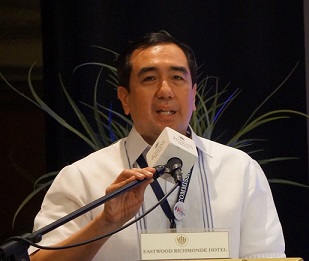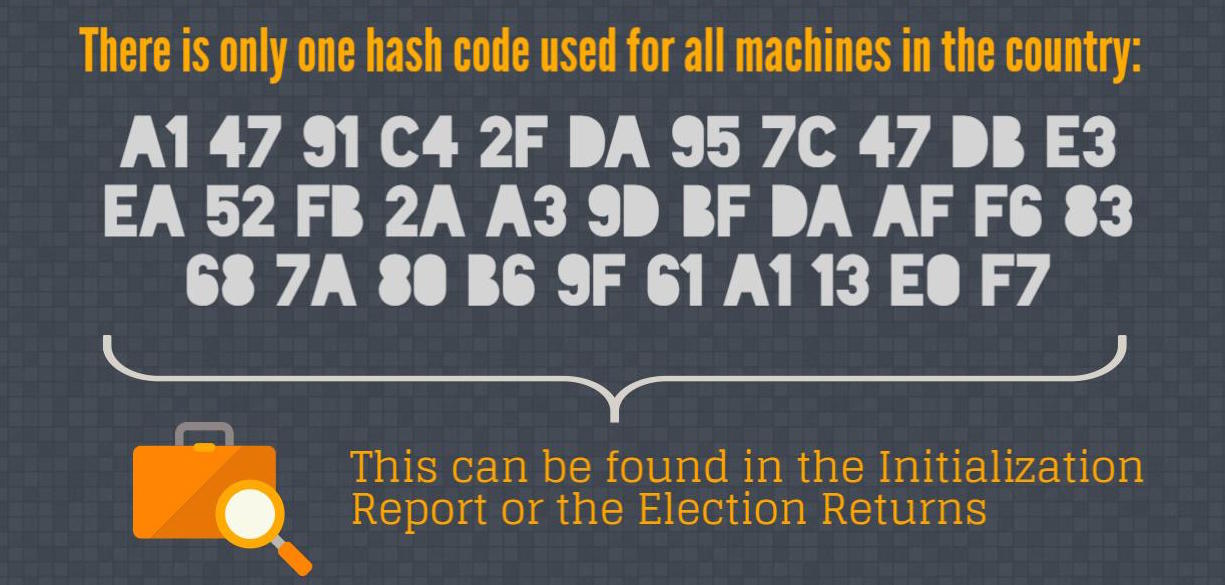By MARIA FEONA IMPERIAL
FIVE days before Election Day, the Board of Election Inspectors (BEIs) still do not have instructions how to test the integrity of the vote counting machines that will be used on May 9.
In a lthree-page letter to Comelec, former Comelec Commissioner Gregorio Y. Larrazabal, who supervised the first automated national election in the country in 2010, reiterated his request for a protocol for the some 30,000 BEIs to verify the hash codes for the 95,977 units of the voting counting machines(VCM).
““There has to be a procedure, properly disseminated to the BEIs and stakeholders, on how to verify the authenticity of the software used in the VCMs all over the Philippines,” Larrazabal said.

Why hash codes are important
Hash codes would determine the authenticity of the software used in the VCMs, since there is only one hash code used for all machines in the country: A1 47 91 C4 2F DA 95 7C 47 DB E3 EA 52 FB 2A A3 9D BF DA AF F6 83 68 7A 80 B6 9F 61 A1 13 EO F7 (We initially put “S2” instead of “52” in the hash code. We apologize for the oversight.–Ed.)
It can be found in the initialization report and the election returns.
Should the voters see a different hash code, it means the VCM used is unauthorized by the poll body. Earlier, Clean Air Philippines said this may mean the machine has been compromised, and therefore could be used for electoral fraud or cheating.
In addition, Larrazabal said the procedures must include how to resolve a dispute in case there is a discrepancy in hash codes.
Failure to do so will run counter to the thrust of Comelec being transparent, he said.
Larrazabal also pointed out in his letter the lack of procedures for the BOC to review the hash codes of the Canvassing and Consolidation System (CCS), which shall be verifiable for political parties and citizen’s arms.
Also, there is still no protocol to follow if there is a discrepancy in the hash codes for both the VCM and the CCS.
“Please take note that if there is a discrepancy in the hash codes in either the VCM or the CCS, this is presumed to be proof of tampered source codes, and use of an unauthorized and illegal software,” he said.

What if there’s discrepancy between actual votes and receipt?
Larrazabal also sought clarification on contingency measures to be adopted when there are discrepancies between what was shaded in the ballot, and what appears on the receipt.
In a televised interview, Comelec spokesperson James Jimenez proposed that there must first be a threshold on the number of complaints before the BEIs request for a replacement machine.
Larrazabal said this measure needs to be further clarified, six days before election.
Possible delay of proclamation of winning candidates
Larrazabal expressed fears on the provisions of Resolution No. 10103 or the General Instructions for the Boards of Canvassers (BOC), which was promulgated on April 26.
Under the resolution, the BOC may proclaim the winning candidate for said position, but should not proceed to transmission of results until results from all main SD cards have been imported.
Larrazabal, however, raised a number of red flags.
“It appears the city or municipal board of canvassers cannot transmit the results of the canvassing results of their board, until results from all SD cards have been imported,” he said.
“Which means that the provincial board of canvassers will not receive any consolidated results from that BOC,” he added.
Consequently, the provincial and the national BOC won’t be able to complete its canvassing, and thus, won’t be able to proclaim winners on the provincial level, Larrazabal said.
The domino effect: provincial BOCs won’t complete the canvassing for the presidential and vice presidential positions, and later the senators and party-list representatives at the national level.
“All told, the above requirement may result in the hijacking of the canvassing of votes, proclamation of winners, for national positions,” he said.
